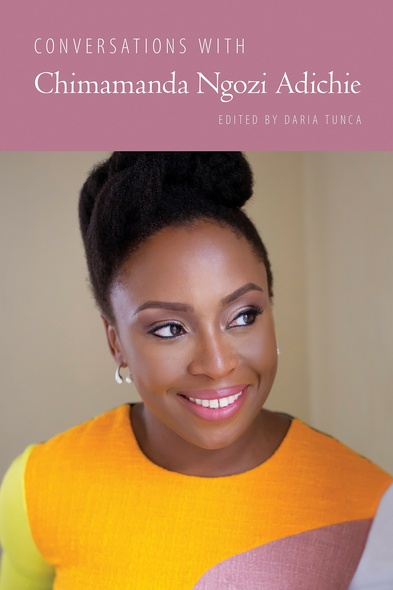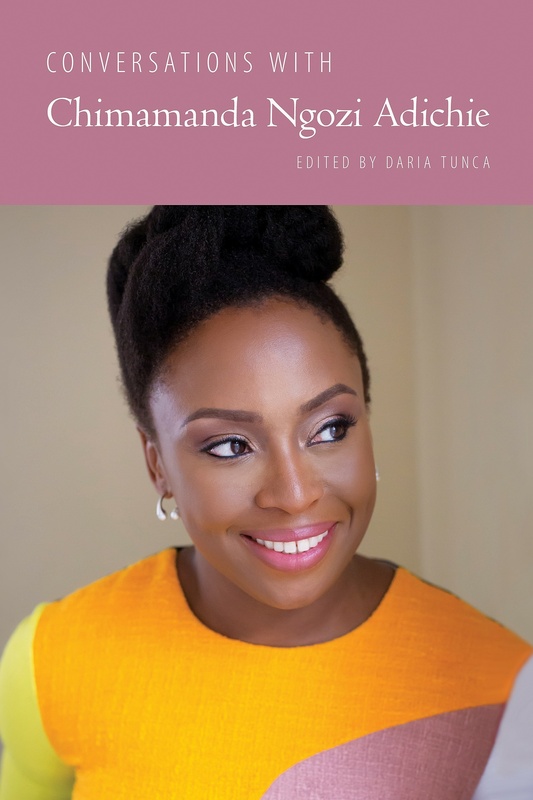
Conversations with Chimamanda Ngozi Adichie
Nigerian author Chimamanda Ngozi Adichie (b. 1977) is undoubtedly one of the most widely acclaimed African writers of the twenty-first century. Best known for her insightful fiction, viral TED talks, and essays on feminism, she is also an outspoken intellectual. As she puts it in an interview with Lia Grainger, in her characteristically straightforward style: “I have things to say and I’ll say them.”
Conversations with Chimamanda Ngozi Adichie is the first collection of interviews with the writer. Covering fifteen years of conversations, the interviews start with the publication of Adichie’s first novel, Purple Hibiscus (2003), and end in late 2018, by which time Adichie had become one of the most prominent figures on the international literary scene. As both scholars and passionate readers of the author’s work are bound to find out, the opinions shared by Adichie in interviews over the years coalesce into a fascinating portrait that presents both abiding features and gradual transformations.
Reflecting the political and emotional scope of Adichie’s work, the conversations contained in this volume cover a wide range of topics, including colonialism, race, immigration, and feminism. Collectively, these interviews testify both to the author’s ardent wish to strive for a more just and equal world, and to her deep interest in exploring our common humanity. As Adichie says in her 2009 interview with Joshua Jelly-Schapiro: “When people call me a novelist, I say, well, yes. I really think of myself as a storyteller.” This book invites Chimamanda Ngozi Adichie to tell her own literary story.
Conversations With Chimamanda Ngozi Adichie is indeed a compendium of knowledge and offers fresh and rare insight into the life of a great writer that is not in the public domain. A must read, I recommend it to everyone who wants to know more about Chimamanda and intends pursuing a writing career.
Tunca’s compilation of published interviews into a book is distinguished by arguing for interviews as stories and as a means of sociality. Her painstaking attempt to carefully select and thematize interviews that examine Adichie’s dedication to her writing as a reflection of her global rise will make a significant contribution to ongoing conversations about literary conversations. Conversations with Chimamanda Ngozi Adichie draws on interviews that engage extensively in the critical work that Adichie is doing as a storyteller and a story that is unveiled to the rest of the world.
Daria Tunca works at the University of Liège, Belgium, where she is a member of the postcolonial research group CEREP. She is author of Stylistic Approaches to Nigerian Fiction and coeditor of several volumes, including Madness in Anglophone Caribbean Literature: On the Edge, Postcolonial Gateways and Walls: Under Construction, and Caryl Phillips: Writing in the Key of Life.





